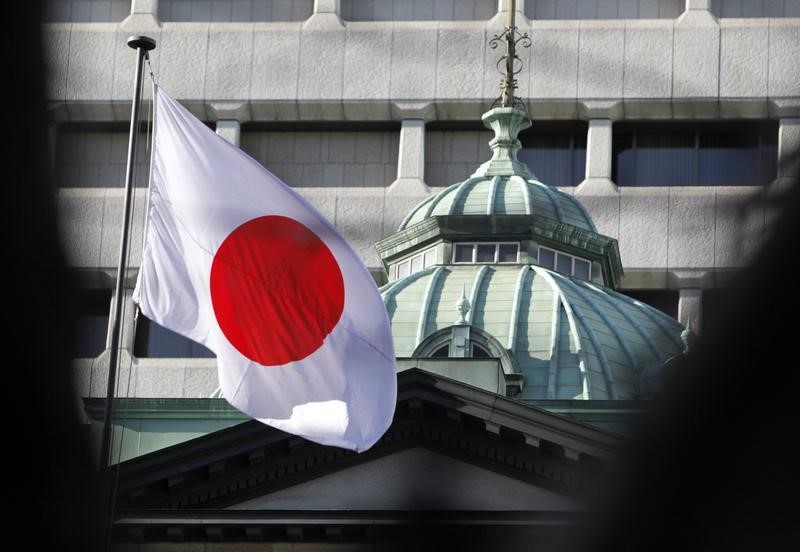
© Reuters.
USD/JPY
-0.09%
Add to/Remove from Watchlist
Add to Watchlist
Add Position
Position added successfully to:
Please name your holdings portfolio
Type:
BUY
SELL
Date:
Amount:
Price
Point Value:
Leverage:
1:1
1:10
1:25
1:50
1:100
1:200
1:400
1:500
1:1000
Commission:
Create New Watchlist
Create
Create a new holdings portfolio
Add
Create
+ Add another position
Close
JP225
-2.61%
Add to/Remove from Watchlist
Add to Watchlist
Add Position
Position added successfully to:
Please name your holdings portfolio
Type:
BUY
SELL
Date:
Amount:
Price
Point Value:
Leverage:
1:1
1:10
1:25
1:50
1:100
1:200
1:400
1:500
1:1000
Commission:
Create New Watchlist
Create
Create a new holdings portfolio
Add
Create
+ Add another position
Close
Investing.com– Japanese stocks fell sharply on Monday, while the yen hovered near one-month highs as media reports suggested the Bank of Japan could end its yield curve control policies by as soon as next week.
The Nikkei 225 index slid as much as 2% in early morning trade, while the yen firmed 0.2% against the dollar and remained close to a one-month high hit last week.
A slew of media reports showed that the BOJ was close to ending its ultra-dovish negative interest rates and yield curve control policies, and could potentially do so at a meeting next week.
Policymakers are considering the move- which will be the bank’s first rate hike since 2007- on expectations of steep increases in wages this year.
An upward revision in gross domestic product (GDP) data on Monday- which showed the Japanese economy avoided a technical recession in the fourth quarter- also factored into fears of an early BOJ pivot.
Resilience in the Japanese economy gives the central bank more headroom to tighten policy.
Reuters reported that the timing of a hike will be a close call between the March 18-19 meeting or the April 25-26 meeting, with policymakers closely watching annual wage negotiations between major firms and labor unions.
Higher wages are likely to elicit more immediate action from the BOJ, given that they herald increased consumption and stickier inflation in the coming months- both of which are key factors for the BOJ in considering a policy pivot.
Any policy tightening by the BOJ marks an end to nearly a decade of ultra-loose policy and stimulus measures enjoyed by Japanese businesses.
A dovish BOJ was a key driver of the Nikkei’s stellar rally through 2023 and early-2024, which saw the stock index reach record-high territory above 40,000 points.
A BOJ pivot also offers more relief to the yen, which was walloped by a growing gulf between Japanese and U.S. rates over the past two years. The yen hovered around the 146 level to the dollar on Monday.
Source: Investing.com



























